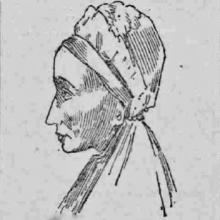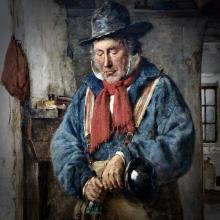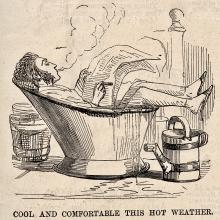
1875–76
Mr EDWIN KNOWLES, Riding Master, Respectfully intimates that he has RESIGNED his connection with the Tollcross Riding Academy, where he has been Master for upwards of Seven Years; and, at the urgent request of numerous patrons, he has COMMENCED BUSINESS on his Own Account, at NORTHUMBERLAND STREET LANE (East), where, from his thorough Experience, and by the most assiduous and courteous personal attentions at all times to the requirements of those honouring him with their patronage, he hopes to merit their confidence and support.
Cards of Terms on application.
Scotsman, 10 April 1875
[Image: GoodFreePhotos.]
*****
FATAL ACCIDENT IN A PRINTING OFFICE.—Yesterday afternoon a workman named James M’Neish Fraser met with a fatal accident in St Andrew’s Printing Office, Thistle Street Lane.
It would appear that the deceased was instructed to fasten one of the belts attached to the machinery, when he was entangled in a portion of the running gear and carried with great force to the roof of the workroom, his head coming in violent contact with the rafters.
After being taken to the Royal Infirmary, he survived only a few minutes.
Scotsman, 20 August 1875
*****
THIS DAY’S POLICE NEWS.
REMITS.
At the City Police Court […] A man named Peter Stewart was remitted on a charge of being concerned in the theft of a firkin of butter, the property of Mr Brown, merchant, York Lane.[1]
Edinburgh Evening News, 4 September 1875
[1] A firkin is a small cask, and used to be a unit of weight for cheese and butter equivalent to 56lb or 25kg.
*****
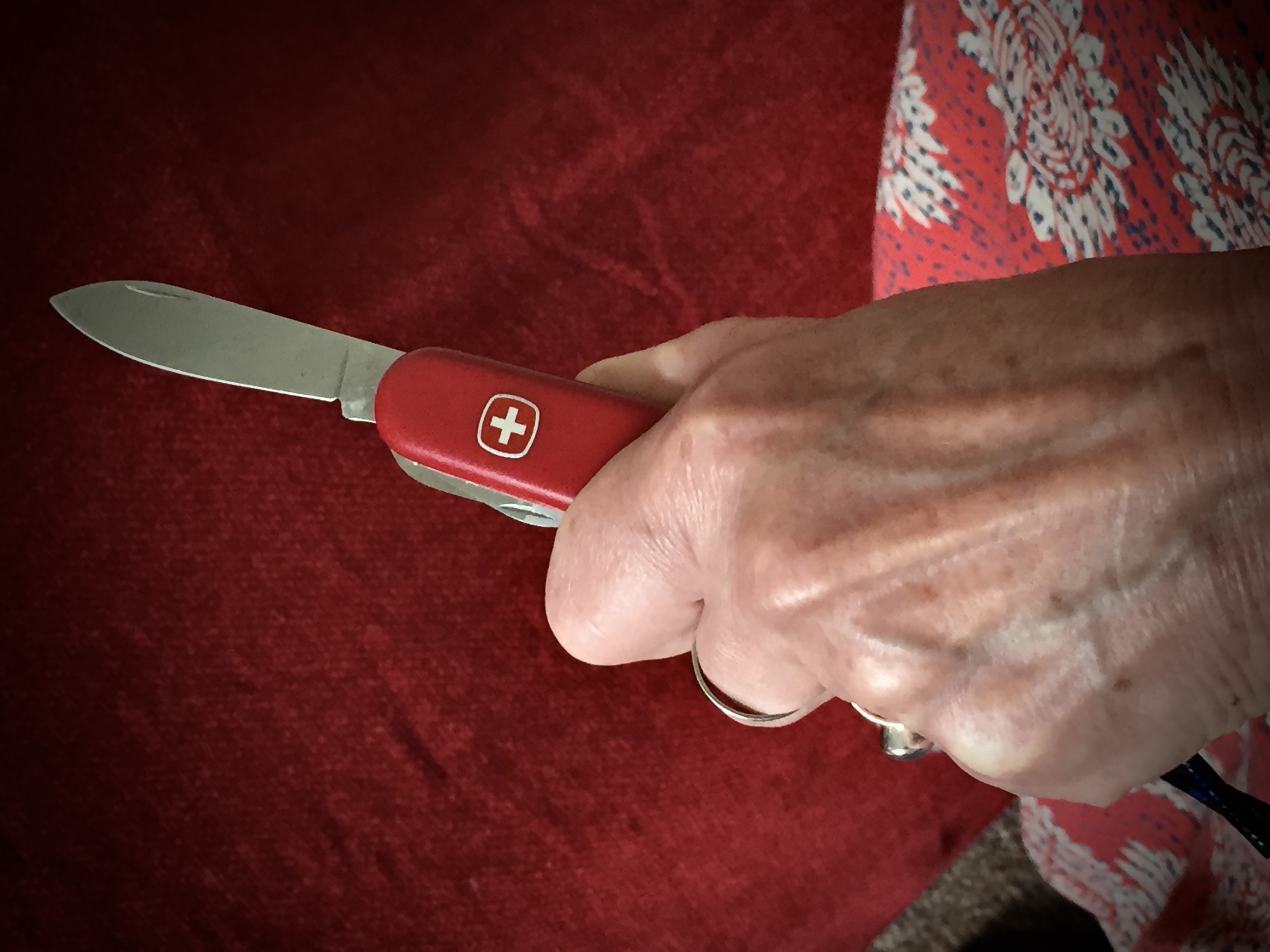
VIOLENT ASSAULT ON A HUSBAND.
At the Edinburgh Sheriff Summary Court to-day, Sheriff Hamilton on the bench—a woman named Paterson, residing in Simpson’s Court, Greenside Row, was charged with assaulting her husband on the 20th ult.
On the evening of the day in question the husband of the prisoner, who had been lying in bed, happening to lift his head, saw his wife standing over him, brandishing an open pocket-knife over his head. He held his hand and caught a descending blow, but the point of the knife penetrated his arm.
The infuriated woman succeeded in inflicting other two cuts upon his shoulder, but his cries for help having brought the neighbours to his assistance, the knife was taken from her, and she was given into the hands of the police.
The charge was found proven, and a previous conviction obtained against her in August last for assaulting her husband being proved, she was sentenced to be kept at hard labour for 60 days.
Edinburgh Evening News, 13 November 1875
*****
AN INCAPABLE FATHER
At the City Police Court before Sheriff Hamilton a respectable looking man named Richard Morris pleaded guilty to a charge of being drunk in Pateerson’s Court, Old Broughton, on Saturday, and thereby incapable of taking care of his infant child. He was fined 15s, or in default, sentenced to eight days’s imprisonment.
Edinburgh Evening News, 3 January 1876
*****
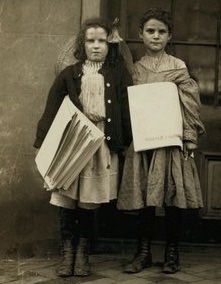
THIS DAY’S POLICE NEWS.
ANNOYING A SHOPKEEPER.
Two girls, named Dorothy Currie and Margaret M’Gluchey, were charged before Bailie Howden at the City Police Court with throwing stones at, and otherwise annoying a woman named Mearns, residing in Simpson’s Court, Greenside, on Monday.
It appeared from the evidence led that the girls, who are in the employment of a cabinetmaker,[2] had been in the habit almost daily of annoying the old woman. On the day in question they had thrown pieces of coal at the woman, pulled down her sign board, and forced open her door.
—Bailie Howden thought the couduct of the girls most disgraceful, and ordered them to find caution to the extent of £2, or in default suffer ten days’ imprisonment.
Edinburgh Evening News, 13 April 1876
[Image: Library of Congress, Prints & Photographs Division, National Child Labor Committee Collection (reproduction number, e.g., LC-USZ62-108765)]
[2] The cabinetmaker may have been William Pinkerton, mentioned in the item below. It also seems likely that the annoyed old woman, ‘Mearns’, was connected to Robert Mearns in the item below. The girls may have gone on to give evidence in the slander case. Pinkerton, of 8 Greenside Row, filed for bankruptcy for the third time in Sept. 1895.
*****
ACTION FOR SLANDER.
At the Edinburgh Sheriff Small-Debt Court to-day, before Sheriff Hamilton, Robert Mearns, Simpson’s Court, Greenside, Edinburgh, sued William Pinkerton, cabinetmaker, Simpson’s Court, Greenside, Edinburgh, for £12 damages for alleged slander.
The summons was in the following terms: “To loss, injury, and damage sustained by me in consequence of you having on the 11th April, 1876, in Simpson’s Court, falsely and calumniously said of and concerning me that I was a thief and a blackguard, and that you could prove me to be a thief.”
The pursuer stated that on the date libelled the defender had called him thief and a blackguard, and said that he had been dismissed from Messrs Rutherford & Co.’s, Leith Street, for stealing whisky and brandy. A witness named William Kerr, a baker, and a police-officer, deponed to the defender using the epithets in their hearing towards the pursuer.
Mr Pinkerton, who conducted himself in an unruly manner in court, said pursuer had no character to lose. He called three girls who are in his employment, who stated that he had called the pursuer a blackguard only, and not a thief.
The Sheriff gave decree for £12, with one guinea of expenses and court expenses.[3]
Edinburgh Evening News, 3 May 1876
[3] About £800 today, or 40 days' wages for a skilled tradesman.
*****
SAVAGE ASSAULT ON A WIFE.
At the City Police Court, before Sheriff Hallard, James Taylor was charged with having assaulted his wife, Agnes Grant, in his house in Scotland Street Lane.
It was alleged that on the 8th, 9th, and 10th inst. he had abused his wife in a shameful manner by striking her with his fists and with a walking stick.
The prisoner pleaded guilty, and was sentenced to 60 days’ imprisonment, with hard labour.
Edinburgh Evening News, 16 May 1876
*****
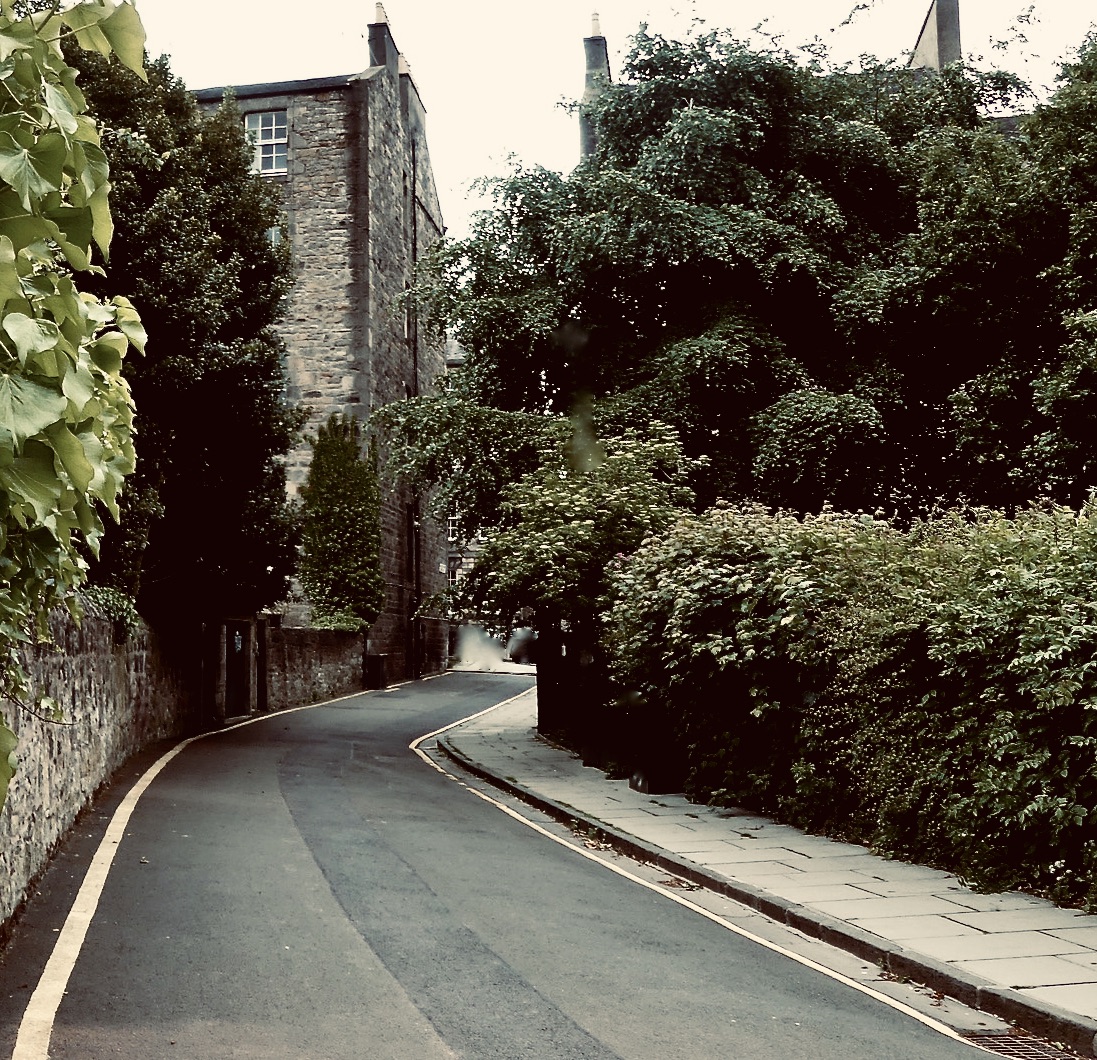
EDINBURGH TOWN COUNCIL.
STATE OF THE LANES AND MEUSE LANES.
A letter was read from Mr Robert White, 23 Drummond Place, bringing under the notice of the Council the state of the lanes and meuse lanes in the city. These, he pointed out, were left unpaved and entirely ignored by the Road Trust, and in consequence were covered with “festering filth,” which made them a nuisance to the whole district in which they were situated.
The houses near Scotland Street Lane, for example, were a constant seat of fevers and disease. It was suggested that a clause could be got into the Road Bill now passing through Parliament making it incumbent on the Road Trust to pave these lanes. It would be one of the greatest sanitary improvements ever obtained in the city.
Treasurer Colston thought the letter should have been sent to the Road Trust and not to the Town Council.
Mr Wilson said he did not wonder at Mr White sending his letter to the Council. It was only another illustration of the desirability of having the whole of the Road Trust business transferred to one department as speedily as possible. (Hear. Hear.) Many lanes in the city were not scheduled under the Act which regulated the affairs of the Road Trust, and consequently not being under the legal care of that body, these lanes were in a filthy condition, and doubtless injurious to health. The sooner the whole of the streets and lanes were put under the charge of the Corporation the better.
Mr Macknight remarked that Mr White had repeatedly complained to the Road Trust about this matter, and his coming to the Council was a sort of dernier resort.
Mr Sloan noticed that it was in consequence of the remonstrance of the Town Council that the lanes about Rose Street were paved, and a similar representation might have a good effect in this case also.
Mr Souter said that Scotland Street Lane was really in a disgraceful state. In wet weather it was covered with water, and the amount of filth was so great that the scavengers could not be got to attend to it.
After some remarks from Mr Turnbull, the letter was on the suggestion of the Lord Provost, remitted to the Streets and Buildings Committee, powers being to memorialise the Road Trust on the subject.
Scotsman, 18 July 1876
[Image: DM.]
*****

ANNOYING A TOWN COUNCILLOR.
At the Edinburgh Police Court to-day, before Bailie Howden, two men named Thomas Main and James Main were charged with annoying and threatening Archibald Meikle, Musselburgh Town Councillor.
—Mr Meikle said that on Wednesday he had occasion to be in Greenside Row, Edinburgh, when he observed the defenders leading a ferocious-looking dog on a string. The dog flew at every animal that came within its reach.
Witness went to another part of the city to transact some business, and while returning to Greenside through Catherine Street, he again saw the defenders walking in front of him with the dog. When came up to them he asked what sort of an animal the dog was. One of the prisoners answered a half bull and half collie.
Witness observed that its breed accounted for its pugnacity, and immediately the dog seized a small terrier which accompanied him. One of the prisoners thereupon kicked the terrier violently. The latter ran behind, and the prisoners’ dog was again going to attack the terrier when witness kicked him. The prisoners then released the dog. and incited him to attack the terrier. They abused witness, and followed for some distance, threatening what they would do to him.
—Other witnesses gave corroboratory evidence.
—The magistrates considered the charge had been proven, and fined each of the prisoners 15s, with the alternative of 10 days’ imprisonment.
Edinburgh Evening News, 20 October 1876
[Image: Wikipedia, creative commons.]
*****

TOWN COUNCIL.—A meeting of Town Council and Police Commission was held on Tuesday—Provost Wood presiding.
The Clerk reported that a serious subsidence of the roadway had taken place in Mews Lane, and that a valuable horse had been killed by falling into the gap.
The Provost said the lane was a public one, the drains, however, being private property. Through some fracture in the pipes, and by the burrowing of rats, the ground had become honeycombed, and although no danger was apparent on the street, the ground unfortunately gave way when a weight was placed upon it.
The matter was remitted to the Law Committee.
Portobello Advertiser, 17 November 1876
[Image: DM.]
*****
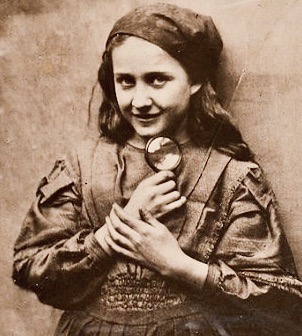
SCHOOL BOARD PROSECUTIONS.—Several cases of parents failing to comply with the Education (Scotland) Act[4] came before Sheriff Hallard at the Summary Court on Saturday.
[…] John Dickson, stableman, Greenside Court, denied that he had neglected the education of two of his children, aged ten and eight years, and in an excited state called out, “Come ’ere, Susan, an’ let them see whuther ye can read or no.’”
Mr M’Donald—“Is Elizabeth here also?” Prisoner—No; she has sair eyes, puir body.” (Laughter.)
It appeared from the evidence of the School Board officers that Dickson had been living apart from his wife for a considerable time, and had given nothing for the maintenance of his family; and that one of his children (Elizabeth) had not been at school for some years, and the other for only five days during the past session.
Susan was then tested in reading by the Sheriff and found to be very imperfect.
Prisoner on being told this wept and said—“She wud have read better if things had gone right.” Mr M’Donald said that if things had gone wrong, it was Dickson’s fault, and asked the Sheriff to fine him in 20s., which was done.[5]
Scotsman, 20 November 1876
[Image: Oscar Rejlander, Wikipedia, creative commons.]
[4] The Education (Scotland) Act, 1872 put elected school boards in charge of education (except for Catholic and Episcopalian schools), and introduced compulsory education of children aged 5–13 years, unless they were aged 10+ and could prove they had reached Grade 5 of the curriculum.
[5] About £66 today, or 3 days’ ages for a skilled tradesman in 1876.
*****

THE COUNCIL AND THE ROAD TRUST.
In reference to a letter from the Clerk to the Road Trust as to a proposal of the Trust to shut up Calton Place as useless, the Streets and Buildings Committee recommended the Council to resist any interference with their property in the solum of the street.[6]
Mr Bennet did not think anything could more clearly show the propriety of the Road Trust and Town Council being amalgamated than such a proposal. The Trustees had no right to interfere with the solum of the street, and yet they not only wanted to shut up Calton Place as useless, but to erect a building which would destroy the amenity of the locality and shut out light and air from the people residing and carrying on business there.
There was a good deal of effrontery manifested in the proposal. That the ground in question did not belong to the proprietor of the adjoining tenements was evident from the fact that the Trustees had been offered a sum in compensation, and that was the might sum of £20.
Mr Drybrough said the proposal was a piece of downright robbery and pillage of the town’s property. There had always been open thoroughfare over the ground and there never was a more audacious attempt to make money at the public expense.
The Committee’s recommendation was agreed to, Mr Steel remarking that he thought the Council should at once let the Road Trust understand its true position.
Scotsman, 6 December 1876
[Image: DM.]
[6] Solum—the ground on which a building (or in this case, a potential building) rests. The offer to buy Calton Pl. had been made by a Mr Menzies, proprietor of the adjacent Waterloo Hotel on Waterloo Pl (Scotsman, 2.12.1876).
*****

